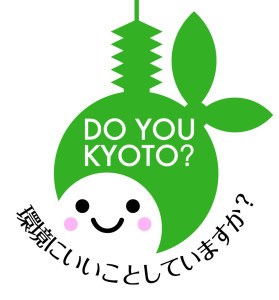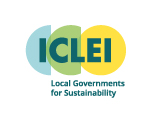TAPplications: DO YOU KYOTO?
Since the introduction of the slogan “DO YOU KYOTO?” meaning “Are you doing something good for the environment?”, Kyoto City has devised the “DO YOU KYOTO?” Project, a flagship environmental education initiative targeting not only citizens, but also businesses and tourists in order to popularize eco-friendly lifestyles. This project – the first of its kind in Japan – aims to address the pressing issue of climate change by fundamentally changing the way people behave, and is implemented through various initiatives such as the Children Eco-lifestyle Challenge, the Eco-friendly Lifestyle Transformation Project, the Eco-school District Project, and the Citizen Cooperative Power-Generation Project.
 Working closely with local businesses and civilians, and targeting social groups such as the youth, elderly, and ethnic minorities, the city aims to heighten environmental awareness so that all groups in Kyoto can contribute to global warming mitigation in their own ways. The Children Eco-lifestyle Challenge, an activity that nurtures children to think critically about their environmental footprint, is being implemented at all elementary schools (168 as of 2014) in the region. Similarly, the Eco-school District Project has been facilitating the creation of independent low-carbon school districts with the help of the region’s women’s associations and health councils, in order to give greater decision-making power to civilians while encouraging eco-friendly lifestyles.
Working closely with local businesses and civilians, and targeting social groups such as the youth, elderly, and ethnic minorities, the city aims to heighten environmental awareness so that all groups in Kyoto can contribute to global warming mitigation in their own ways. The Children Eco-lifestyle Challenge, an activity that nurtures children to think critically about their environmental footprint, is being implemented at all elementary schools (168 as of 2014) in the region. Similarly, the Eco-school District Project has been facilitating the creation of independent low-carbon school districts with the help of the region’s women’s associations and health councils, in order to give greater decision-making power to civilians while encouraging eco-friendly lifestyles.
Furthermore, the city has designated the 16th of every month “DO YOU KYOTO?” Day: a day when everyone is encouraged to participate in environmentally friendly activities such as “No My Car Day,” “Lights Down,” and “Kyoto Light Dinner.” “No My Car Day” promotes the use of public transport instead of personal vehicles. It also ensures larger pedestrian walkways, and works to fuel buses and garbage trucks with biodiesel made from tempura oil to lower harmful emissions. “Lights Down,” which requests that all outdoor lights be turned off, and “Kyoto Light Dinner,” which encourages restaurant managers to use candles instead of electric light, serve to promote the principles of electricity conservation. Together, these activities help to keep the environment at the forefront of people’s minds, and ultimately to change their lifestyles.
Through the TAP, Kyoto City plans to significantly upscale the “DO YOU KYOTO?” Project to impact a more diverse, larger population through education and through encouraging greater civil participation. The city aims to expand the project beyond its jurisdiction through international cooperation. It has already begun introducing environmental education in Iskandar Development Region, Malaysia, in cooperation with the National Institute for Environmental Studies.





